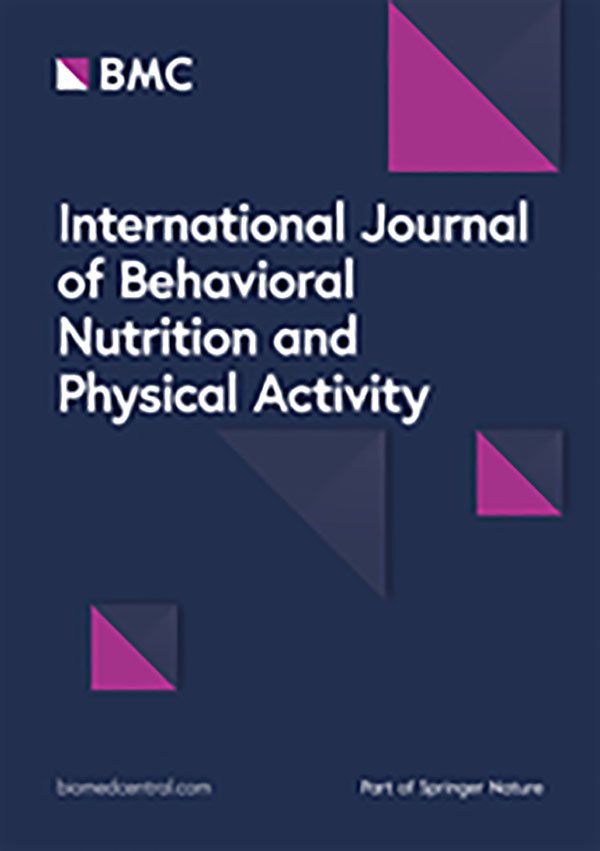BOONE, N.C. — Is picky eating more than an acknowledged childhood phase?
Research by Appalachian State University alumnus Jordan Ellis ’15, Dr. Amy Galloway, professor in the university’s Dr. Wiley F. Smith Department of Psychology, and others indicates appetitive behaviors such as picky/fussy eating may carry over from one’s child and adolescent years into adulthood.
The article detailing their findings, titled “A functional description of adult picky eating using latent profile analysis,” appeared in the online, peer-reviewed International Journal of Behavioral Nutrition and Physical Activity (IJBNPA) — the official journal of the International Society of Behavioral Nutrition and Physical Activity — in November 2018. IJBNPA is a publication of BioMed Central (BMC) Ltd., which is a part of Springer Nature.
In the paper’s abstract, the authors state, “Previous research identified a (picky eater) PE profile in children, marked by high food avoidance (satiety responsiveness, fussiness, and slow eating) and low food approach (food enjoyment and responsiveness) appetitive traits.
“Research has indicated that adult picky eating (PE) is associated with elevated psychosocial impairment, as well as limited dietary variety and fruit and vegetable intake.”
The team completed their research by using data collected from a sample of 1,339 U.S. adults recruited through Amazon’s Mechanical Turk (MTurk), an online marketplace where both companies and individuals can coordinate the use of human intelligence to perform tasks outside the ability of computers.
The study participants completed an online survey that included a modified self-report version of the Child Eating Behavior Questionnaire (CEBQ-A), a parent-rated instrument designed to assess eight dimensions of eating style in children developed through previous research by faculty at University College London.
According to the study’s results, participants in the picky eater profile (18.1 percent) scored higher on measures of adult picky eating and social eating anxiety compared to all other profiles. Additionally, those in the picky eater profile scored higher on eating-related impairment and depression than those in the moderate eater profile and were more likely to be of normal weight.
Through the team’s research, a distinct adult PE profile was observed, indicating childhood PE and appetitive behaviors may carry over into adulthood.
“Research identifying meaningful groups of picky eaters will help to shed light on the conditions under which picky eating is a risk factor for significant psychosocial impairment or distress, or weight-related problems,” the authors state in the paper’s abstract.
Appalachian’s Office of Student Research provided some funding for Ellis and Galloway’s project.
About the Appalachian authors
Ellis, of Asheville, holds a Master of Arts in clinical health psychology from Appalachian and a Bachelor of Science in health and wellness promotion from the University of North Carolina at Asheville. He is currently pursuing a Ph.D. in East Carolina University’s health psychology program with a concentration in clinical health psychology.
He has presented his research at multiple conferences, including the 39th Annual Meeting of the Society for Behavioral Medicine, the 32nd Annual Meeting of the American Association of Cardiovascular and Pulmonary Rehabilitation and the 49th Annual Convention of the Association for Behavioral and Cognitive Therapies.
Ellis’ research has been published in journals such as Psychological Assessment, the Journal of Cardiopulmonary Rehabilitation and Prevention, and Appetite.
Galloway, a professor in Appalachian’s Department of Psychology, holds a Ph.D. in biopsychology from the University of Georgia, as well as an M.S. in animal behavior from Bucknell University and a B.A. in psychology from Furman University.
Additionally, she holds a certificate in conservation ecology and sustainable development from the University of Georgia, and she completed an NIH Postdoctoral Fellowship in developmental psychology at Penn State University from 2000–03.
Her research and service interests include development of food preferences; picky eating; normal and disordered eating in children and adults; parent and child food interactions; and sustainable and community food system research.
Galloway and her colleagues have studied eating behavior in nonhuman and human primates at various stages of life, including the prenatal period, infancy, early childhood, middle childhood, adolescence and across adulthood.
Her research has been published in such journals as Frontiers in Endocrinology, Appetite, Body Image, Psychological Assessment, International Journal of Pediatric Obesity and many others.
What do you think?
Share your feedback on this story.
About the International Journal of Behavioral Nutrition and Physical Activity
The International Journal of Behavioral Nutrition and Physical Activity (IJBNPA) is devoted to furthering the understanding of the behavioral aspects of diet and physical activity and includes multiple levels of analysis, including populations, groups and individuals, as well as epidemiology and behavioral, theoretical and measurement research areas. IJBNPA prioritizes research based on randomized controlled trials (RCTs), systematic reviews (with or without meta-analyses, as appropriate) and observational studies. Learn more at https://ijbnpa.biomedcentral.com.
About the Dr. Wiley F. Smith Department of Psychology
Appalachian State University’s Dr. Wiley F. Smith Department of Psychology serves more than 1,400 undergraduate majors seeking the Bachelor of Arts or Bachelor of Science degree in psychology, as well as 90 graduate students across four graduate programs: experimental psychology (MA), industrial-organizational psychology and human resource management (MA), school psychology (MA/SSP) and clinical psychology (PsyD). Learn more at https://psych.appstate.edu.
About the College of Arts and Sciences
The College of Arts and Sciences (CAS) at Appalachian State University is home to 17 academic departments, two centers and one residential college. These units span the humanities and the social, mathematical and natural sciences. CAS aims to develop a distinctive identity built upon our university's strengths, traditions and locations. The college’s values lie not only in service to the university and local community, but through inspiring, training, educating and sustaining the development of its students as global citizens. More than 6,800 student majors are enrolled in the college. As the college is also largely responsible for implementing App State’s general education curriculum, it is heavily involved in the education of all students at the university, including those pursuing majors in other colleges. Learn more at https://cas.appstate.edu.
About Appalachian State University
As a premier public institution, Appalachian State University prepares students to lead purposeful lives. App State is one of 17 campuses in the University of North Carolina System, with a national reputation for innovative teaching and opening access to a high-quality, cost-effective education. The university enrolls more than 21,000 students, has a low student-to-faculty ratio and offers more than 150 undergraduate and 80 graduate majors at its Boone and Hickory campuses and through App State Online. Learn more at https://www.appstate.edu.







![How NCInnovation Is Rethinking Economic Development in North Carolina [faculty featured]](/_images/_posts/2026/02/rethinking-economic-development-600x400.jpg)







